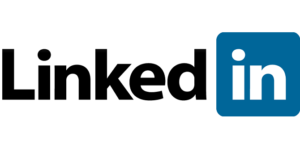Networking can be a complex process for many people! There are different aspects to it and all of them require thought. Starting with a clear objective is important – knowing exactly why you are doing it and what you want to get out of it provides direction and motivation. Knowing who to connect with or meet is also important – otherwise you could end up with hundreds of contacts who can’t help you with your objectives. Knowing how to get connected to or meet the people who can help you in your job search is another important part of networking. These aspects of networking have been dealt with in previous articles on this website.
The question of what to say to people or ask of them once connected is frequently asked. This question typically arises when new networkers hear that the golden rule of networking is not to ask for a job. Asking people you have just met or been connected to for a job can create awkwardness, especially if they don’t have a job for you. Asking for a job directly scares people off and can create a ‘cul de sac’ or dead-end for you. So what do you ask of them instead?
Assuming your objective was to connect with people who are in a position to offer you the type of job you are seeking (or at least to connect with people who know these people and could connect you or introduce you to them), then what you ask for is advice or information. Asking someone for advice is non-threatening – it doesn’t create awkwardness – and frequently strokes the person’s ego as it shows respect and admiration. People ask advice from people whose opinions they believe matter, and when asked for advice, it’s natural for the person asked to assume that the person asking admires or respects them. They therefore are likely to agree to help!
The advice to ask for is about your career or about your job search. Tell the person that they have taken the career path you wish to pursue and that you wish to discuss with them the best way forward for you in your pursuit. You are merely asking for career advice.
Or you might again say something flattering about their position or career to-date, and on that basis you are seeking information or advice on the best way to achieve your career goal (i.e. get that job!). As long as you are not asking them directly for a job, they are likely to agree to meet you or get involved in an e-mail exchange. Meeting face-to-face is the most effective way of doing this, and asking for just fifteen to twenty minutes of their time shouldn’t be too much. Always end such discussions by asking them who else might be able to help you.
Even without asking for a job there is much to be gained from such an encounter. You meet them, discuss your career and job search, and they might actually have a vacancy for you! If they don’t, you will have gained valuable knowledge about your career or job search, and they may refer you to someone else who might have a job vacancy or who can introduce you to someone else who might. No matter what the outcome, it’s a positive one for you.
To back up your position that you are not there to ask for a job, do not bring a copy of your resume with you! If asked, tell them that you are there for advice and information so didn’t bring a resume with you, but that you will send it to them shortly afterwards.
This type of meeting (it’s called informational interviewing) is not difficult to conduct, and consistently produces positive outcomes.






